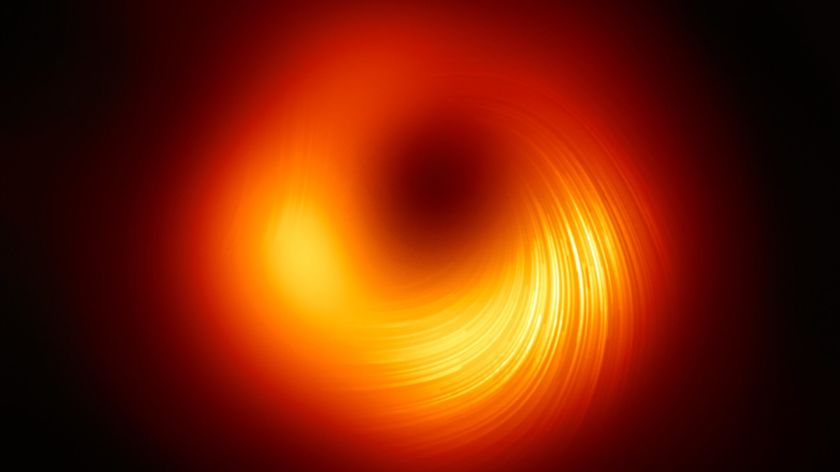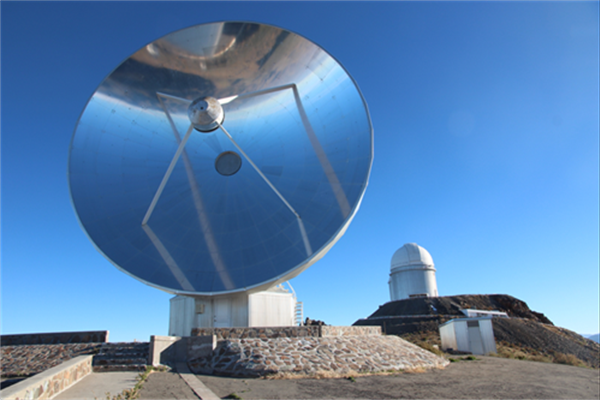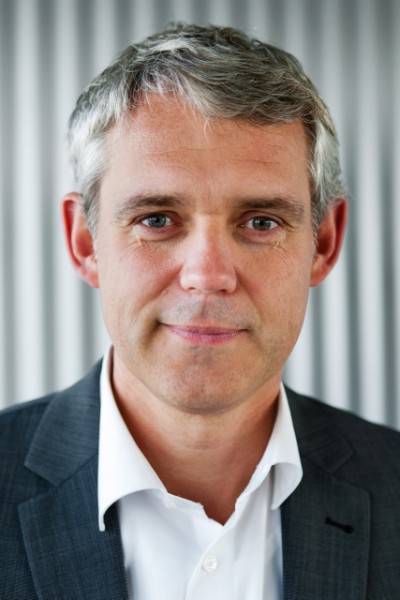University puts aside 12 million euros for black hole research
-
 De befaamde foto van het zwarte gat. Foto: EHT Collaboration
De befaamde foto van het zwarte gat. Foto: EHT Collaboration
Radboud University will allocate 11.9 million euros to Heino Falcke's research group over the next ten years. The money is needed to continue participation in worldwide black hole research, say both the astronomy professor and the University Board.
It made worldwide news headlines in April 2019: the first picture of a black hole. The achievement put project leader Heino Falcke and Nijmegen on the scientific world map in one fell swoop. Black holes and Radboud University have since been synonymous.
Both Falcke and the University Executive Board would like to keep it this way, but the astronomy professor’s lab has issues with its continuity. ‘Two major NWO applications have been rejected in recent years,’ says Falcke. ‘This is a big problem because, as a department, we are highly dependent on project grants. We cannot keep good people without extra money, let alone hire new persons from outside.’
Eleventh telescope
The University has now agreed to invest 11.9 million euros in Falcke’s research group. That money is specifically intended for the Event Horizon Telescope (EHT), the international team of astronomers that investigates black holes. In addition to Nijmegen, this includes renowned research institutes, such as the Massachusetts Institute of Technology (MIT) and the German Max Planck Institute. The EHT currently manages ten radio telescopes that jointly take measurements of black holes.
The Nijmegen investment consists of two parts. The first part is a structural amount of 1 million euros per year, for ten years, for Falcke’s EHT work. The other 1.9 million is specifically intended for a new telescope that the professor wants to materialise in Namibia, dubbed the Africa Millimetre Telescope (AMT). This would become the eleventh telescope in the EHT network and the first one in Africa.
‘The extra funding is an Erleichterung: a relief’
The money is a guarantee and will be paid out in phases, depending on the progress of the project. It will in part be used as matching money in grant applications. It helps to attract external money, Falcke says in a reaction. ‘I am convinced that the money will pay itself back this way.’
Vulnerable
An Erleichterung, the German professor calls the extra funding, a relief. ‘It is a big burden that has been taken off my shoulders.’ With the structural amount of one million a year, Falcke plans to hire new people. They can help with the EHT’s core tasks, such as performing observations and developing new measuring instruments and analyses.
The money also gives Nijmegen – and therefore the Netherlands – a better position within the EHT network, he says. ‘Unlike other partners, Radboud University does not manage a telescope of its own.’ This fact makes the University less indispensable within the EHT team and, therefore, vulnerable.

The latter will change when the Namibian telescope comes into existence. Thanks to the University Board’s 1.9 million euros, the African telescope can now take off, says Radboud astronomer and project leader Marc Klein Wolt. He is currently in Namibia to strengthen cooperation with local partners and the government. ‘It’s great to bring the good news to everyone. The telescope means top science in Namibia, with Namibia. This investment is exactly what we need to persuade other partners to put money into the AMT.’ This summer, Klein Wolt told Vox about his ambitious plans. For one, a ‘second-hand’ telescope has to be shipped from Chile to Africa, and the astronomer also will develop an education program in Namibia.
The University is paying for the million-dollar injection out of the ‘general university funds’, a budget that is filled by college tuition fees, among other things. Radboud University uses those means for other structural investments as well, such as the Radboud Excellence Initiative, which also receives almost one million euros a year. Similar guarantees have also previously been issued to magnet lab HFML-Felix and applications for major NWO grants, such as the gravity programme.
Scarce resources
Wouldn’t it be better to put the 12 million into the humanities? Extra investments are already being made in science and technology through the government’s ‘sector plan funds’, for example. Unfortunately, scarce resources require making choices, the University says in a written response. Rector Han van Krieken: ‘This [the EHT’s black hole programme, ed.] concerns appealing fundamental research that can only take place with major investments and long-term, international cooperation.’
The University will also continue to support other disciplines, emphasises spokesman Martijn Gerritsen. We are a broad university. For example, the Board also invests in Radboud Heritage, in a variety of interfaculty projects and in maintaining small courses, such as theology. Also, don’t forget, he says, that the Executive Board compensated the humanities in 2019 when the government issued the Van Rijn budget cuts.
Frontier research
Falcke is aware of his privileged position, he says. ‘Our research is frontier science where we, as Radboud University, can play a leading and very visible role internationally. It puts Nijmegen on the global map, which will benefit us all in the long term. For example, we are also going to write proposals together with academics in the humanities.’
The fact that the Executive Board now steps up shows, according to the professor, how necessary it is for the government to put more money into research. ‘In the Netherlands, this is only 2.2% of the gross national product. In Germany, 3.5 on. That is a big difference.’
See here for an interview with Heino Falcke about his plans for the multi-million euro investment.




